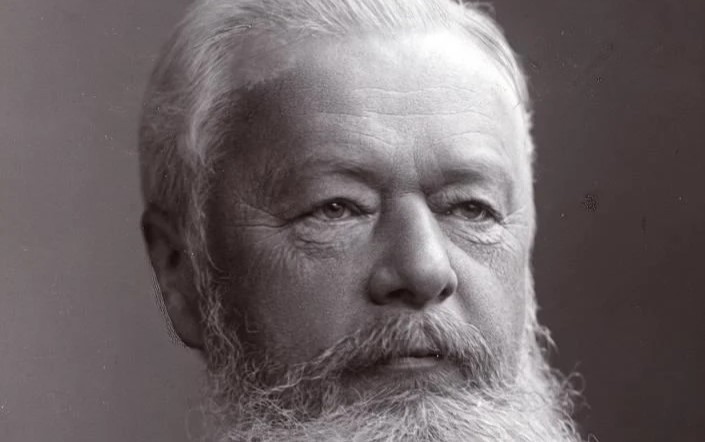The first physician to try electrocuting the brain: Who is Gustav Fritsch?
German physician. He carried out one of the first experimental studies on electrical stimulation of the brain. The most important feature of Fritsch is that he worked in various branches of science. The most important of his extensive research, ranging from astronomy to anthropology, is on the electrophysiology of the brain.

FRITSCH, Gustav Theodor (1838-1927)
He was born on 5 March 1838 in Cottbus, near Berlin, and died on 12 June 1927 in Berlin. After completing his secondary education in Breslau, he worked under physiologist Johannes Müller in Berlin. Fritsch, who later started studying medicine and natural sciences at the University of Berlin, continued his medical education at the universities of Breslau and Heidelberg and graduated in 1862.
After a research trip on geography and anthropology in South Africa between 1863 and 1866, he was appointed as an assistant at the Berlin Anatomy Institute in 1867. He became a professor in 1874 and worked in the histology and physiology departments until his retirement in 1921.
Gustav Theodor Fritsch (5 March 1838 – 12 June 1927) was a German anatomist, anthropologist, traveller and physiologist from Cottbus. Fritsch studied natural science and medicine in Berlin, Breslau and Heidelberg. In 1874 he became an associate professor of physiology at the University of Berlin, where he was later appointed head of the histological department at the physiological institute.
Fritsch, who received the title of honorary professor of the Berlin Institute in 1899 and gradually concentrated his studies on anthropology, founded the Berlin Anthropological Society with R Virchow in 1900.
The most important feature of Fritsch is that he worked in various branches of science. Perhaps the most important of his extensive research, ranging from astronomy to anthropology, is the experiments he conducted on dogs with Eduard Hitzig on the electrophysiology of the brain. In 1870, Fritsch and Hitzig detected the existence of a functional localization in the cerebral cortex, which they stimulated by applying galvanic (direct) current, and broke new ground in brain physiology.
He is known for his work with neuropsychiatrist Eduard Hitzig (1839–1907) involving the localization of the motor areas of the brain. In 1870, the two scientists probed the cerebral cortex of a dog to discover that electrical stimulation of different areas of the cerebrum caused involuntary muscular contractions of specific parts of the dog's body.
Participating in research trips in Iran and Egypt, Fritsch observed the solar eclipse in Aden in 1868 and the transit of Venus in Iran in 1874. He studied electric fish in Egypt. He published a study on the brains of fish in Izmir in 1878.
Fritsch, who was also a talented photographer and used his skills in microscopic anatomy and anthropology studies in medicine, was also one of the publishers of an international photography magazine focusing on medicine and natural sciences.
• WORKS (mainly): Untersuchungen über den feinern Ban des Fischgehirns, mit besonderer Berücksichtigung der Homologien bei anderen Wirbelthierklassen, 1878, (“Studies on the Fine Structure of the Brain of Fish, with Particular Consideration of Homologies with Other Vertebrates”).
